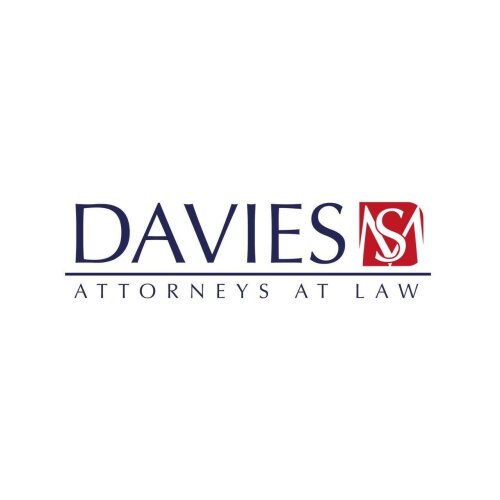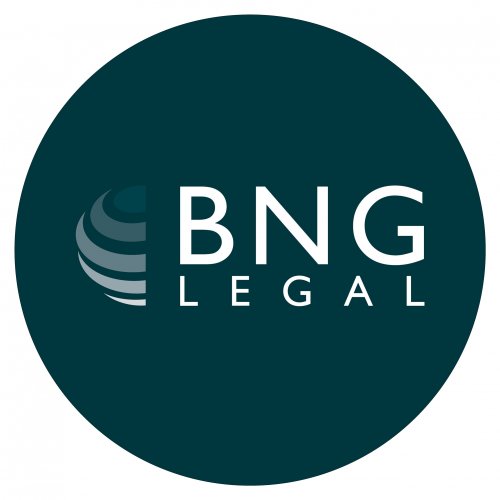Best Tax Lawyers in Cambodia
Share your needs with us, get contacted by law firms.
Free. Takes 2 min.
Or refine your search by selecting a city:
List of the best lawyers in Cambodia
About Tax Law in Cambodia
Tax law in Cambodia is governed by a combination of laws, regulations, and directives issued primarily by the General Department of Taxation (GDT) under the Ministry of Economy and Finance. The taxation system is designed to serve as a primary source of governmental revenue, with major types including corporate income tax, value-added tax (VAT), withholding tax, and personal income tax. As Cambodia continues to develop economically, its tax system is also evolving to enhance compliance, simplify processes, and encourage foreign investment.
Why You May Need a Lawyer
Engaging a tax lawyer in Cambodia can be beneficial in several situations. For businesses, legal advice can be crucial for navigating corporate tax regulations, ensuring compliance with VAT requirements, and managing international taxation issues. Individuals may require legal assistance for resolving disputes with tax authorities, understanding personal income tax obligations, or engaging in estate planning. Furthermore, complex situations such as mergers, acquisitions, and business restructuring often necessitate professional legal guidance to optimize tax impact and avoid potential legal pitfalls.
Local Laws Overview
Key aspects of Cambodian tax laws include:
- Corporate Income Tax (CIT): The standard CIT rate is 20%, with a reduced rate available for certain sectors and activities. Companies must file annual tax returns.
- Value-Added Tax (VAT): VAT is levied at a standard rate of 10% on the supply of goods and services. Registration for VAT is mandatory for businesses that meet the turnover threshold.
- Withholding Tax: Applies to various payments made to residents and non-residents, including service fees, interest, royalties, and rent. Rates vary based on the nature of the payment.
- Personal Income Tax: Residents are taxed on worldwide income at progressive rates, while non-residents are taxed only on Cambodian-sourced income.
- Tax on Profit: Certain industries may be subject to specific tax incentives or restrictions, reflecting government priorities and international agreements.
Frequently Asked Questions
What is the deadline for submitting tax returns in Cambodia?
The tax year in Cambodia is the calendar year. Corporate tax returns must be submitted by the end of March the following year. Personal income tax declarations for employees are handled monthly by the employer.
How is VAT registration handled in Cambodia?
Businesses meeting the statutory turnover threshold must register for VAT with the General Department of Taxation. The registration process includes submitting relevant documents and may be conducted online.
What penalties apply for late tax payments?
Penalties for late tax payment include interest charged at a rate determined by the GDT, in addition to potential fines. Continuous non-compliance can lead to severe penalties, including possible criminal charges.
Are there any tax incentives available for new businesses?
The Cambodian government offers various incentives, including tax holidays, exemptions, and favourable rates for investment in priority sectors such as agriculture, energy, and technology, aimed at encouraging economic growth.
How are foreign individuals taxed in Cambodia?
Foreign residents are taxed on worldwide income at progressive rates. Non-residents are only taxed on income sourced within Cambodia, typically through withholding tax mechanisms.
What should I do if I receive a tax assessment notice?
If you receive a tax assessment notice, it is crucial to review it carefully and respond within the given timeframe. Consulting with a tax lawyer can assist in understanding the notice and preparing a proper response or appeal if necessary.
Do I need to pay taxes on rental income from property in Cambodia?
Yes, rental income is subject to tax. It can be taxed under the simplified tax regime or as part of personal income tax, depending on the landlord's classification and registration status.
Can I appeal a tax decision in Cambodia?
Yes, taxpayers can appeal tax decisions through the General Department of Taxation or seek resolution through various legal processes, including administrative review and court proceedings.
What are the common mistakes to avoid when dealing with taxes in Cambodia?
Common mistakes include failing to register for the correct tax regime, neglecting to keep accurate financial records, missing filing deadlines, and misunderstanding applicable rates and exemptions.
How can I ensure compliance with Cambodian tax laws as an expatriate?
Expatriates can ensure compliance by seeking local legal and financial advice, staying informed of tax law changes, maintaining thorough financial records, and filing all required tax forms accurately and on time.
Additional Resources
For further assistance regarding tax matters in Cambodia, consider the following resources:
- General Department of Taxation (GDT): The primary body for tax regulation and enforcement in Cambodia.
- Ministry of Economy and Finance: Offers policy guidance and regulatory updates.
- Local Law Firms: Many firms specialize in tax law, offering personalized assistance and advice.
- Chambers of Commerce: These may provide valuable insights and resources for foreign investors and entrepreneurs.
Next Steps
If you require legal assistance with tax matters in Cambodia, consider taking the following steps:
- Gather all relevant documentation, including tax notices, financial records, and correspondence with tax authorities.
- Contact a reputable law firm or tax advisor specializing in Cambodian tax law for a consultation.
- Discuss your situation in detail to explore possible legal options and strategies.
- Ensure you meet all deadlines and procedural requirements advised by your legal representative to avoid unnecessary complications.
Lawzana helps you find the best lawyers and law firms in Cambodia through a curated and pre-screened list of qualified legal professionals. Our platform offers rankings and detailed profiles of attorneys and law firms, allowing you to compare based on practice areas, including Tax, experience, and client feedback.
Each profile includes a description of the firm's areas of practice, client reviews, team members and partners, year of establishment, spoken languages, office locations, contact information, social media presence, and any published articles or resources. Most firms on our platform speak English and are experienced in both local and international legal matters.
Get a quote from top-rated law firms in Cambodia — quickly, securely, and without unnecessary hassle.
Disclaimer:
The information provided on this page is for general informational purposes only and does not constitute legal advice. While we strive to ensure the accuracy and relevance of the content, legal information may change over time, and interpretations of the law can vary. You should always consult with a qualified legal professional for advice specific to your situation.
We disclaim all liability for actions taken or not taken based on the content of this page. If you believe any information is incorrect or outdated, please contact us, and we will review and update it where appropriate.
Browse tax law firms by city in Cambodia
Refine your search by selecting a city.










